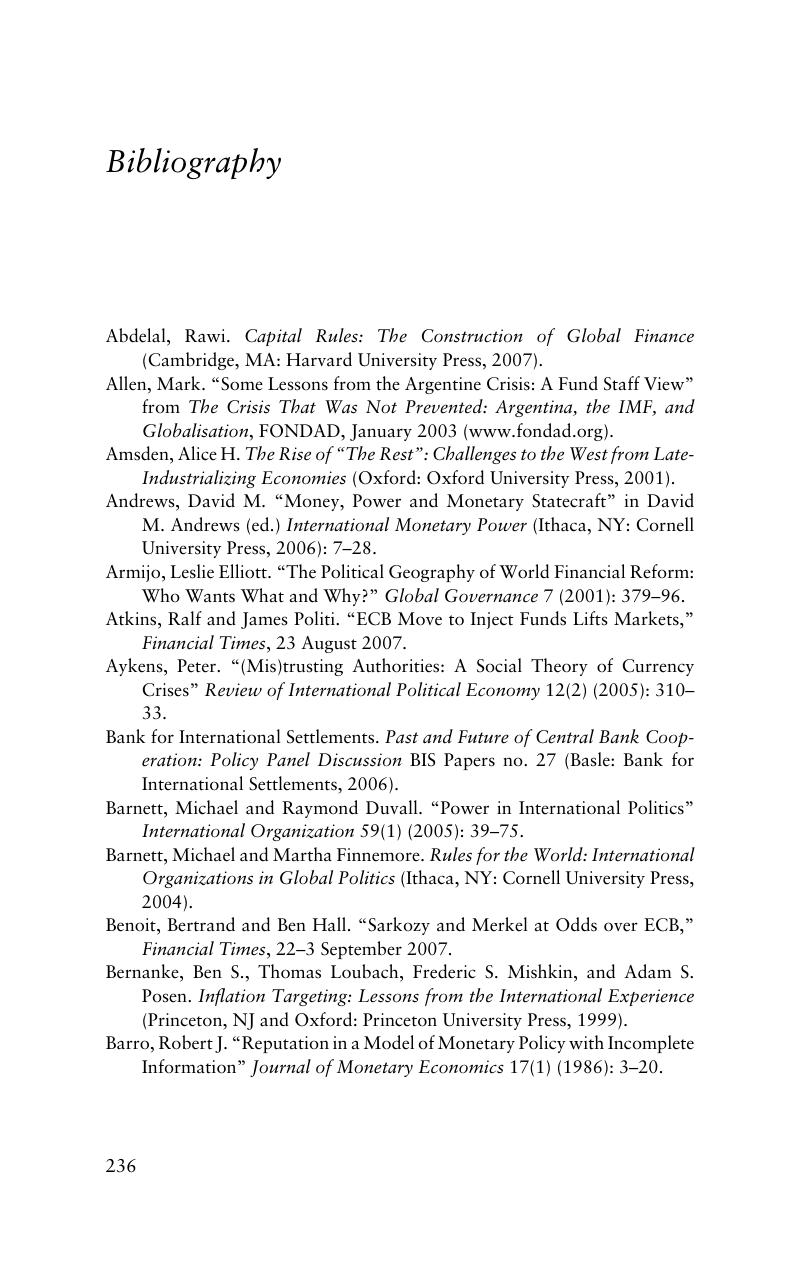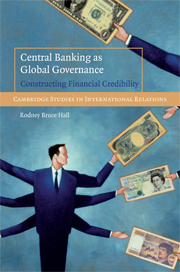Book contents
- Frontmatter
- Contents
- Preface
- 1 Central banking as governance
- 2 The social character of money
- 3 Instituting facts and constituting rules
- 4 Constitutive power relations
- 5 Rules and international monetary systems
- 6 Central bank independence as credibility
- 7 Transparency and intersubjectivity in central banking
- Bibliography
- Index
- Cambridge Studies in International Relations
- References
Bibliography
Published online by Cambridge University Press: 03 May 2010
- Frontmatter
- Contents
- Preface
- 1 Central banking as governance
- 2 The social character of money
- 3 Instituting facts and constituting rules
- 4 Constitutive power relations
- 5 Rules and international monetary systems
- 6 Central bank independence as credibility
- 7 Transparency and intersubjectivity in central banking
- Bibliography
- Index
- Cambridge Studies in International Relations
- References
Summary

- Type
- Chapter
- Information
- Central Banking as Global GovernanceConstructing Financial Credibility, pp. 236 - 247Publisher: Cambridge University PressPrint publication year: 2008



